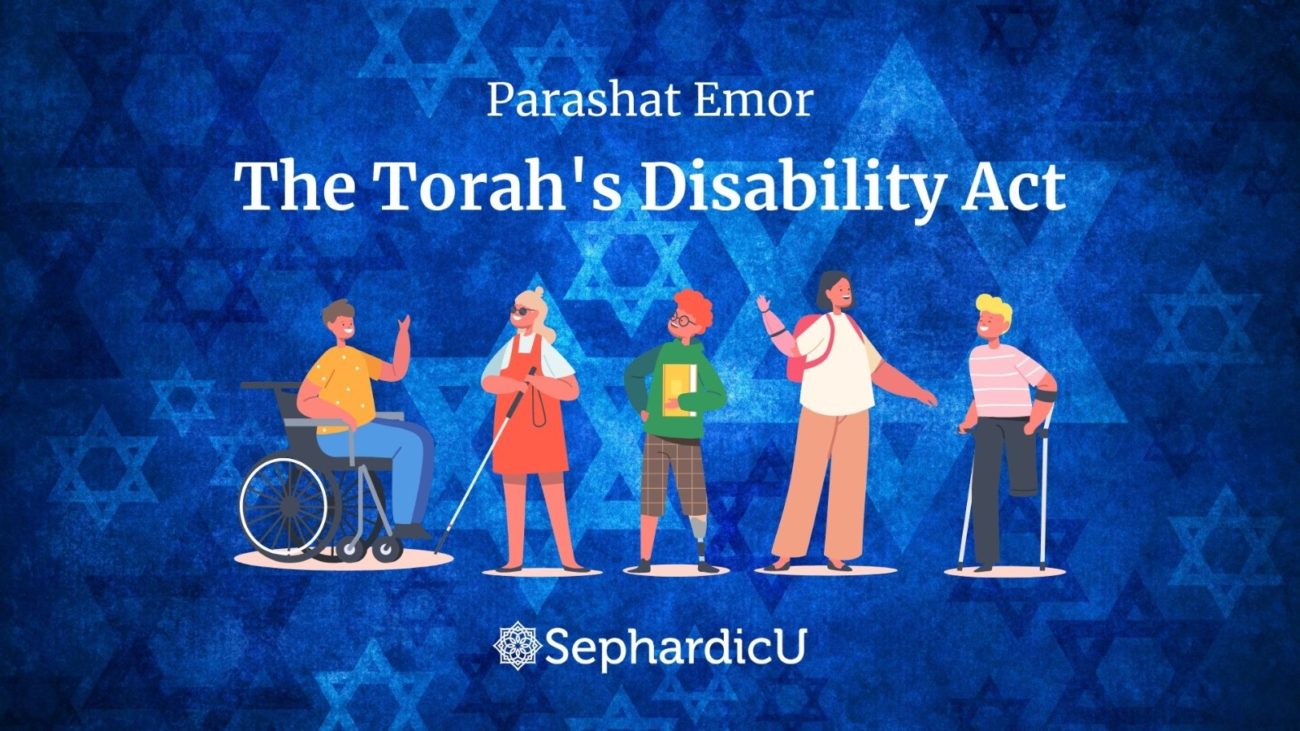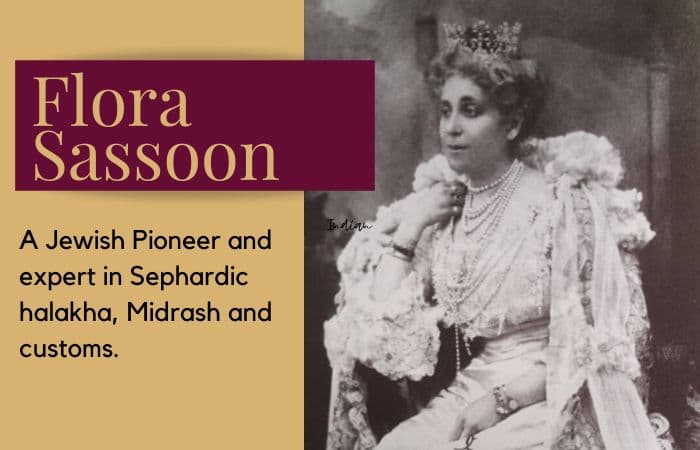| Aspect | Description |
|---|---|
| Parasha Number | The 31st Parasha in the Book of Leviticus (Vayikra). |
| Parasha Name | Emor (אֱמֹר), translating to “Speak” in Hebrew, referencing the command to the priests regarding their conduct and responsibilities. |
| Torah Book | Leviticus (Vayikra). |
| Number of Verses | Comprises 121 verses. |
| Number of Words | Approximately 2,027 words in the Hebrew text. |
| Primary Characters | Key figures include Moses, Aaron, and the priests, with God communicating instructions regarding the duties and regulations for the priesthood. |
| Key Themes | Focuses on the regulations for the priesthood, including guidelines for the behavior and responsibilities of the priests, as well as various festivals and holy days. |
| Significant Events | Presents laws and regulations specific to the priesthood, including guidelines for offerings, rituals, and the observance of festivals such as Passover, Shavuot, and Sukkot. |
| Notable Quotes | “Speak unto the priests, the sons of Aaron, and say unto them: There shall none defile himself for the dead among his people.” (Leviticus 21:1) |
| Legacy | Parashat Emor contributes to the understanding of the role and responsibilities of the priesthood in Jewish tradition. |
| Relevance Today | The themes of priestly duties, ritual purity, and the observance of festivals remain relevant in contemporary Jewish practice, guiding individuals in matters of religious observance and devotion. |
| Well-Known Stories | Include regulations for the priesthood, such as the requirements for offerings, rituals, and the observance of festivals, highlighting the importance of religious duties and observance in Jewish life. |
| Special Observances | Highlighted in synagogue readings, emphasizing the importance of the priesthood and the observance of festivals in Jewish life. |
| Connections to Texts | Emor builds upon preceding narratives in Leviticus, expanding on the regulations for the priesthood established in earlier chapters and providing further guidelines for religious observance and devotion. |
| Theological Significance | Emphasizes the centrality of the priesthood in Jewish theology, highlighting the sacred duties and responsibilities entrusted to the descendants of Aaron and reinforcing the covenantal relationship between God and the Jewish people. |
Parashat Emor, the 31st portion in the Book of Leviticus (Vayikra), is named after its central theme, “Emor,” meaning “Speak” in Hebrew. This portion focuses on God’s instructions to the priests regarding their conduct and responsibilities. It contains regulations specific to the priesthood, covering various aspects of their duties, rituals, and observance of festivals.
Throughout Parashat Emor, Moses communicates God’s instructions to Aaron and the priests, emphasizing the importance of maintaining ritual purity and upholding the sanctity of their roles. The portion outlines guidelines for offerings, rituals, and the observance of festivals such as Passover, Shavuot, and Sukkot. It also addresses the conduct of the priests, including restrictions on defilement and rules for marriage.
A notable highlight of Parashat Emor is the emphasis on the sacred duties entrusted to the priests and the importance of their adherence to these responsibilities. The portion underscores the centrality of the priesthood in facilitating the Israelites’ connection with God and preserving the sanctity of religious rituals.
Moreover, Parashat Emor emphasizes the significance of religious observance and the role of the priesthood in maintaining the spiritual integrity of the community. It highlights the importance of upholding religious traditions and fostering a sense of reverence for the divine.
In addition to the regulations for the priesthood, Parashat Emor contains instructions for the entire community regarding the observance of festivals and the sanctity of the Sabbath. These guidelines serve to reinforce the covenantal relationship between God and the Jewish people, emphasizing the importance of faithfulness and devotion to divine commandments.
Overall, Parashat Emor serves as a guide for religious observance and devotion, emphasizing the sacred duties of the priesthood and the importance of maintaining ritual purity. It continues to inspire Jewish communities today in their commitment to upholding religious traditions and fostering a deep connection with the divine.
אמור
כ״א:א׳-כ״ד
Emor
Leviticus 21:1-24:23
יחזקאל
מ״ד
הֵ֜מָּה יָבֹ֣אוּ אֶל־מִקְדָּשִׁ֗י וְהֵ֛מָּה יִקְרְב֥וּ אֶל־שֻׁלְחָנִ֖י לְשָׁרְתֵ֑נִי וְשָׁמְר֖וּ אֶת־מִשְׁמַרְתִּֽי׃
וְהָיָ֗ה בְּבוֹאָם֙ אֶֽל־שַׁעֲרֵי֙ הֶחָצֵ֣ר הַפְּנִימִ֔ית בִּגְדֵ֥י פִשְׁתִּ֖ים יִלְבָּ֑שׁוּ וְלֹֽא־יַעֲלֶ֤ה עֲלֵיהֶם֙ צֶ֔מֶר בְּשָׁרְתָ֗ם בְּשַׁעֲרֵ֛י הֶחָצֵ֥ר הַפְּנִימִ֖ית וָבָֽיְתָה׃
פַּאֲרֵ֤י פִשְׁתִּים֙ יִהְי֣וּ עַל־רֹאשָׁ֔ם וּמִכְנְסֵ֣י פִשְׁתִּ֔ים יִֽהְי֖וּ עַל־מׇתְנֵיהֶ֑ם לֹ֥א יַחְגְּר֖וּ בַּיָּֽזַע׃
וּ֠בְצֵאתָ֠ם אֶל־הֶחָצֵ֨ר הַחִיצוֹנָ֜ה אֶל־הֶחָצֵ֣ר הַחִיצוֹנָה֮ אֶל־הָעָם֒ יִפְשְׁט֣וּ אֶת־בִּגְדֵיהֶ֗ם אֲשֶׁר־הֵ֙מָּה֙ מְשָׁרְתִ֣ם בָּ֔ם וְהִנִּ֥יחוּ אוֹתָ֖ם בְּלִֽשְׁכֹ֣ת הַקֹּ֑דֶשׁ וְלָֽבְשׁוּ֙ בְּגָדִ֣ים אֲחֵרִ֔ים וְלֹא־יְקַדְּשׁ֥וּ אֶת־הָעָ֖ם בְּבִגְדֵיהֶֽם׃
וְרֹאשָׁם֙ לֹ֣א יְגַלֵּ֔חוּ וּפֶ֖רַע לֹ֣א יְשַׁלֵּ֑חוּ כָּס֥וֹם יִכְסְמ֖וּ אֶת־רָאשֵׁיהֶֽם׃
וְיַ֥יִן לֹא־יִשְׁתּ֖וּ כׇּל־כֹּהֵ֑ן בְּבוֹאָ֖ם אֶל־הֶחָצֵ֥ר הַפְּנִימִֽית׃
וְאַלְמָנָה֙ וּגְרוּשָׁ֔ה לֹא־יִקְח֥וּ לָהֶ֖ם לְנָשִׁ֑ים כִּ֣י אִם־בְּתוּלֹ֗ת מִזֶּ֙רַע֙ בֵּ֣ית יִשְׂרָאֵ֔ל וְהָֽאַלְמָנָה֙ אֲשֶׁ֣ר תִּֽהְיֶ֣ה אַלְמָנָ֔ה מִכֹּהֵ֖ן יִקָּֽחוּ׃
וְאֶת־עַמִּ֣י יוֹר֔וּ בֵּ֥ין קֹ֖דֶשׁ לְחֹ֑ל וּבֵין־טָמֵ֥א לְטָה֖וֹר יֽוֹדִעֻֽם׃
וְעַל־רִ֗יב הֵ֚מָּה יַעַמְד֣וּ (לשפט) [לְמִשְׁפָּ֔ט] בְּמִשְׁפָּטַ֖י (ושפטהו) [יִשְׁפְּט֑וּהוּ] וְאֶת־תּוֹרֹתַ֤י וְאֶת־חֻקֹּתַי֙ בְּכׇל־מוֹעֲדַ֣י יִשְׁמֹ֔רוּ וְאֶת־שַׁבְּתוֹתַ֖י יְקַדֵּֽשׁוּ׃
וְאֶל־מֵ֣ת אָדָ֔ם לֹ֥א יָב֖וֹא לְטׇמְאָ֑ה כִּ֣י אִם־לְאָ֡ב וּ֠לְאֵ֠ם וּלְבֵ֨ן וּלְבַ֜ת לְאָ֗ח וּלְאָח֛וֹת אֲשֶֽׁר־לֹא־הָיְתָ֥ה לְאִ֖ישׁ יִטַּמָּֽאוּ׃
וְאַחֲרֵ֖י טׇהֳרָת֑וֹ שִׁבְעַ֥ת יָמִ֖ים יִסְפְּרוּ־לֽוֹ׃
וּבְיוֹם֩ בֹּא֨וֹ אֶל־הַקֹּ֜דֶשׁ אֶל־הֶחָצֵ֤ר הַפְּנִימִית֙ לְשָׁרֵ֣ת בַּקֹּ֔דֶשׁ יַקְרִ֖יב חַטָּאת֑וֹ נְאֻ֖ם אֲדֹנָ֥י יֱהֹוִֽה׃
וְהָיְתָ֤ה לָהֶם֙ לְֽנַחֲלָ֔ה אֲנִ֖י נַחֲלָתָ֑ם וַאֲחֻזָּ֗ה לֹֽא־תִתְּנ֤וּ לָהֶם֙ בְּיִשְׂרָאֵ֔ל אֲנִ֖י אֲחֻזָּתָֽם׃
הַמִּנְחָה֙ וְהַחַטָּ֣את וְהָאָשָׁ֔ם הֵ֖מָּה יֹאכְל֑וּם וְכׇל־חֵ֥רֶם בְּיִשְׂרָאֵ֖ל לָהֶ֥ם יִהְיֶֽה׃
וְרֵאשִׁית֩ כׇּל־בִּכּ֨וּרֵי כֹ֜ל וְכׇל־תְּר֣וּמַת כֹּ֗ל מִכֹּל֙ תְּרוּמ֣וֹתֵיכֶ֔ם לַכֹּהֲנִ֖ים יִהְיֶ֑ה וְרֵאשִׁ֤ית עֲרִסֽוֹתֵיכֶם֙ תִּתְּנ֣וּ לַכֹּהֵ֔ן לְהָנִ֥יחַ בְּרָכָ֖ה אֶל־בֵּיתֶֽךָ׃
כׇּל־נְבֵלָה֙ וּטְרֵפָ֔ה מִן־הָע֖וֹף וּמִן־הַבְּהֵמָ֑ה לֹ֥א יֹאכְל֖וּ הַכֹּהֲנִֽים׃ {פ}
Ezekiel
44:15-31
Emor
more on Parashat Parashat Emor: Priestly Rules
Quick Guide: The Five Books of Moses
| Genesis | Exodus | Leviticus | Numbers | Deuteronomy |
|---|---|---|---|---|
| Bereshit (1:1-6:8) |
Shemot (1:1-6:1) |
Vayikra (1:1-5:26) |
Bemidbar (1:1-4:20) |
Devarim (1:1-3:22) |
| Noach (6:9-11:32) |
Va'era (6:2-9:35) |
Tzav (6:1-8:36) |
Naso (4:21-7:89) |
Va'etchanan (3:23-7:11) |
| Lech Lecha (12:1-17:27) |
Bo (10:1-13:16) |
Shemini (9:1-11:47) |
Behaalotecha (8:1-12:16) |
Ekev (7:12-11:25) |
| Vayera (18:1-22:24) |
Beshalach (13:17-17:16) |
Tazria (12:1-13:59) |
Shelach (13:1-15:41) |
Re'eh (11:26-16:17) |
| Chaye Sarah (23:1-25:18) |
Yitro (18:1-20:23) |
Metzora (14:1-15:33) |
Korach (16:1-18:32) |
Shoftim (16:18-21:9) |
| Toledot (25:19-28:9) |
Mishpatim (21:1-24:18) |
Achare Mot (16:1-18:30) |
Chukat (19:1-22:1) |
Ki Tetze (21:10-25:19) |
| Vayetze (28:10-32:3) |
Terumah (25:1-27:19) |
Kedoshim (19:1-20:27) |
Balak (22:2-25:9) |
Ki Tavo (26:1-29:8) |
| Vayishlach (32:4-36:43) |
Tetzaveh (27:20-30:10) |
Emor (21:1-24:23) |
Pinchas (25:10-30:1) |
Nitzavim (29:9-30:20) |
| Vayeshev (37:1-40:23) |
Ki Tisa (30:11-34:35) |
Behar (25:1-26:2) |
Matot (30:2-32:42) |
Vayelech (31:1-30) |
| Miketz (41:1-44:17) | Vayakhel (35:1-38:20) |
Bechukotai (26:3-27:34) |
Masei (33:1-36:13) |
Haazinu (32:1-52) |
| Vayigash (44:18-47:27) |
Pekude (38:21-40:38) |
V'Zot HaBeracha (33:1-34:12) |
||
| Vayechi (47:28-50:26) |












Parashat Matot – English reading